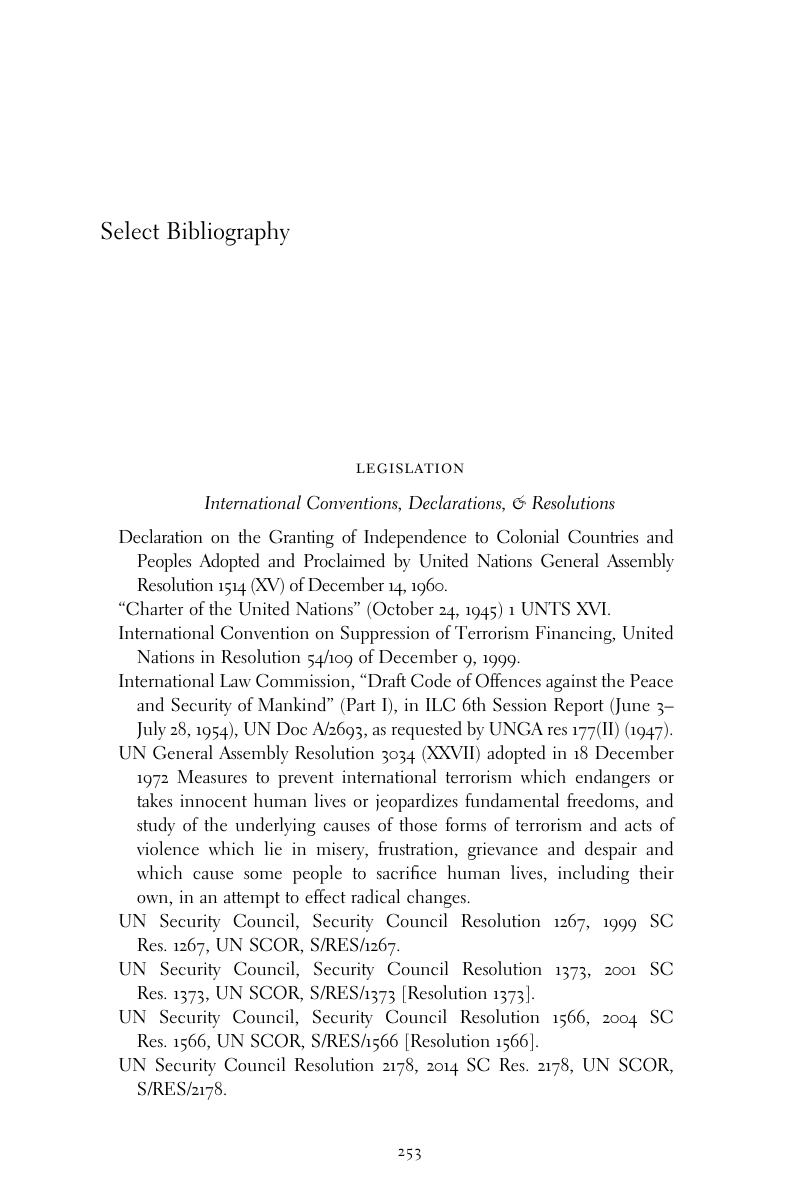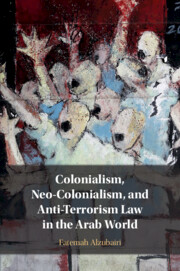Book contents
- Colonialism, Neo-Colonialism, and Anti-Terrorism Law in the Arab World
- Colonialism, Neo-Colonialism, and Anti-Terrorism Law in the Arab World
- Copyright page
- Dedication
- Contents
- Acknowledgments
- Introduction
- 1 On Imperialism, Colonialism, and Neo-Colonialism
- 2 Terrorism and Counter-Terrorism at the International Level: A Challenge in the Postcolonial World
- 3 Terrorism and Counter-Terrorism in the Arab World
- 4 The Colonial and Neo-Colonial Experience in Egypt
- 5 Counter-Terrorism in Egypt
- 6 The Colonial and Neo-Colonial Experience in Tunisia
- 7 Counter-Terrorism in Tunisia
- Conclusions
- Book part
- Select Bibliography
- Index
- References
Select Bibliography
Published online by Cambridge University Press: 04 January 2019
- Colonialism, Neo-Colonialism, and Anti-Terrorism Law in the Arab World
- Colonialism, Neo-Colonialism, and Anti-Terrorism Law in the Arab World
- Copyright page
- Dedication
- Contents
- Acknowledgments
- Introduction
- 1 On Imperialism, Colonialism, and Neo-Colonialism
- 2 Terrorism and Counter-Terrorism at the International Level: A Challenge in the Postcolonial World
- 3 Terrorism and Counter-Terrorism in the Arab World
- 4 The Colonial and Neo-Colonial Experience in Egypt
- 5 Counter-Terrorism in Egypt
- 6 The Colonial and Neo-Colonial Experience in Tunisia
- 7 Counter-Terrorism in Tunisia
- Conclusions
- Book part
- Select Bibliography
- Index
- References
Summary

- Type
- Chapter
- Information
- Publisher: Cambridge University PressPrint publication year: 2019



